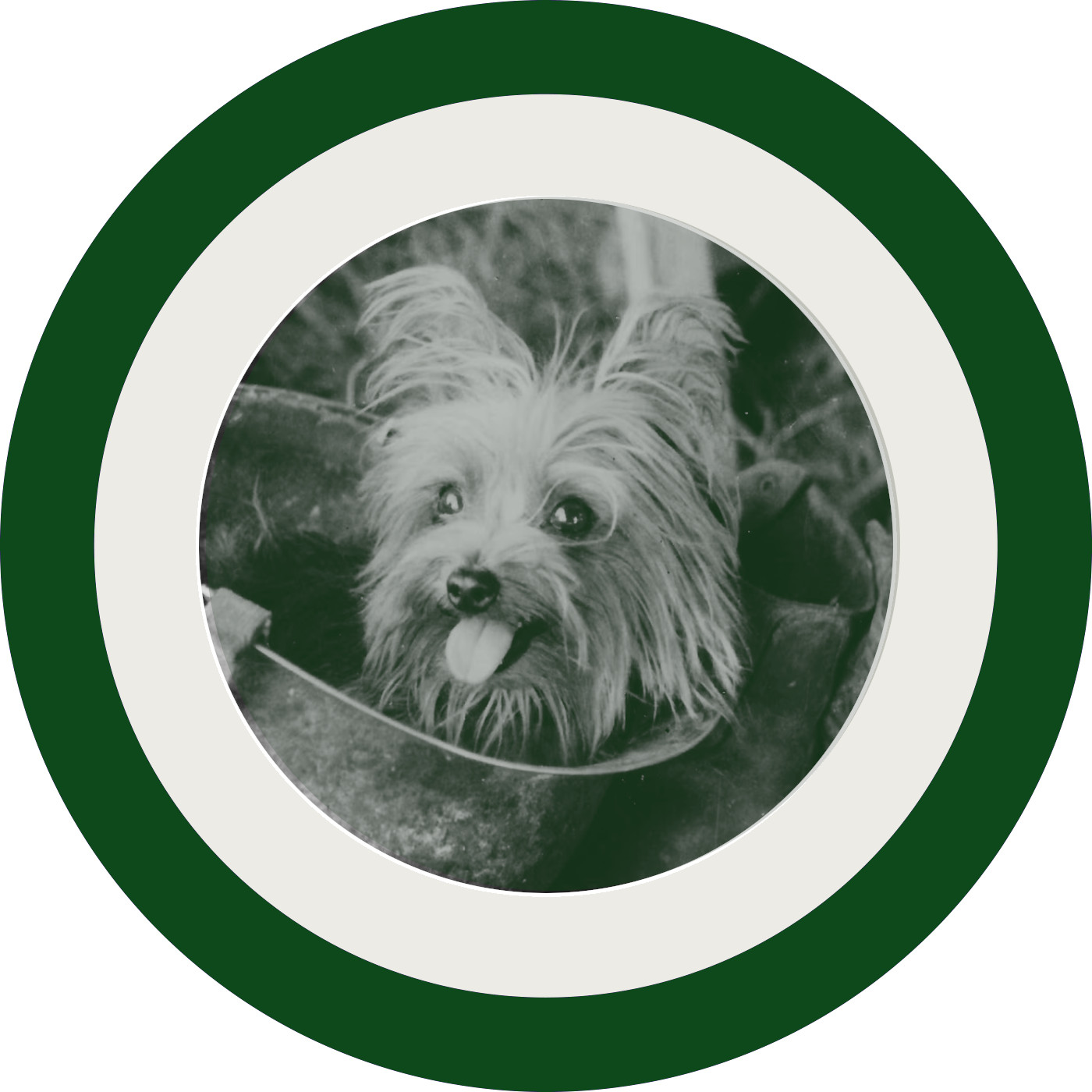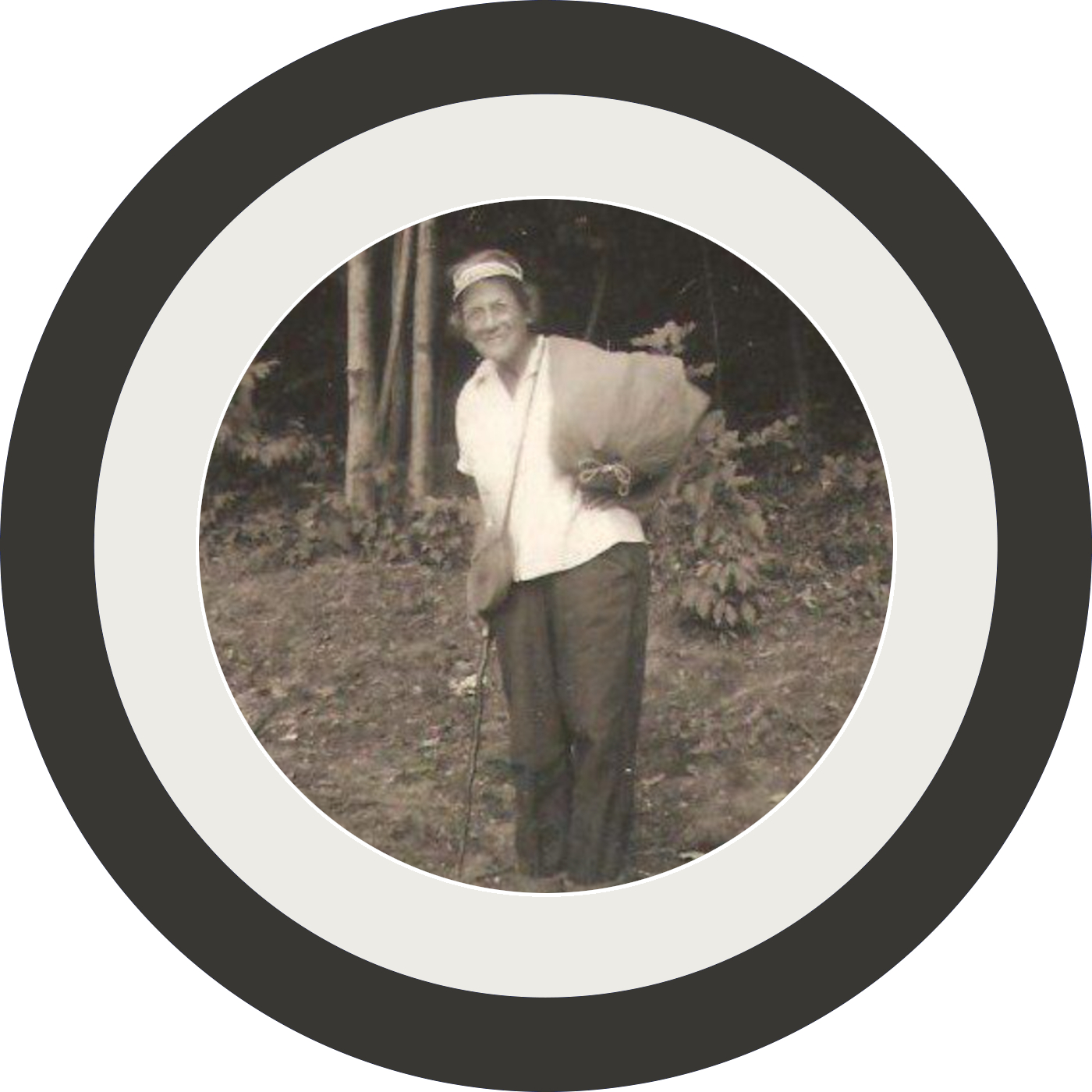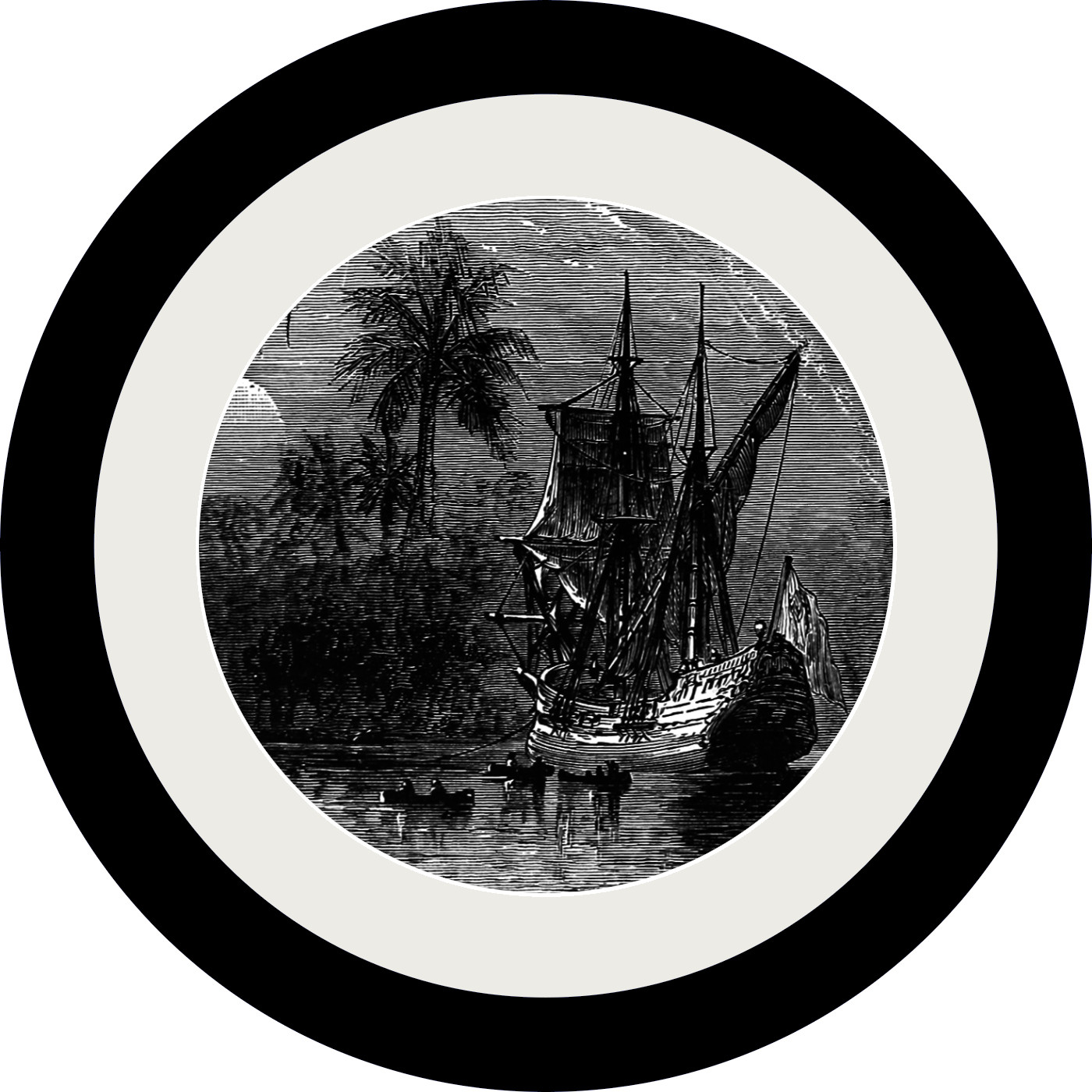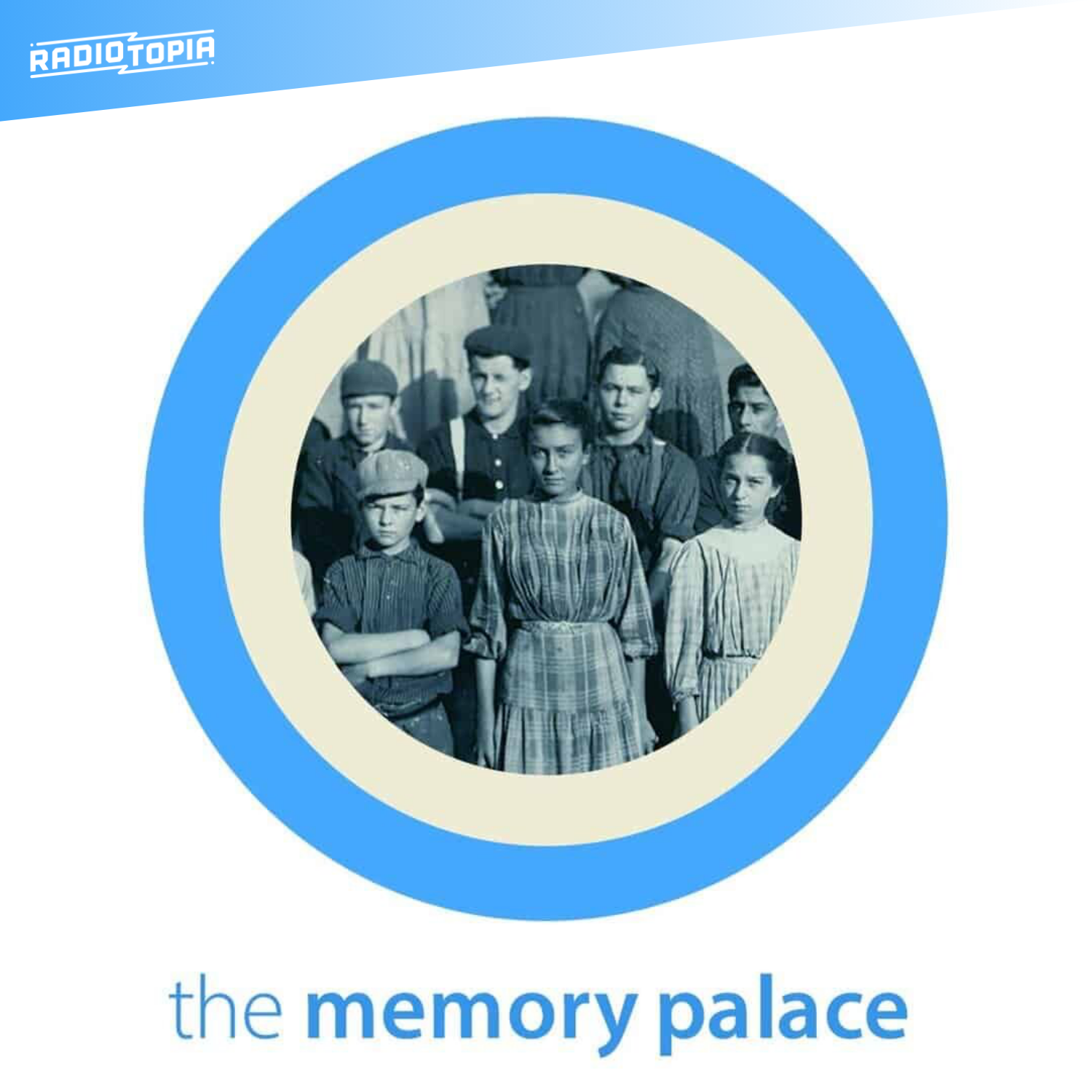Episode 210: Smoky and Bill
The Memory Palace is a proud member of Radiotopia from PRX.
Music
I Believe in the Night by Keith Kenniff
Improvisations sur les folies d’Espagne (extraits) from Marin Marais and Jordi Savall
Finally by Lambert
Voltige by Marin Lizotte
Violin Solo no. 1 by Peter Broderick
Fratres fur violin und klavier by Avro Part as played by Ursula Schloch and Marcel Worms
Dungen by Henrik Lindstom
Notes
- There are plenty of places to go to read about Smoky and Bill but why would want to go anywhere else than his book, Yorkie Doodle Dandy?
Learn about your ad choices: dovetail.prx.org/ad-choices
Press play and read along
Transcript
Speaker 1 Support for this podcast and the following message comes from Sutter Health.
Speaker 1 From life-changing transplants to high-blood pressure care, Sutter's team of doctors, surgeons, and nurses never miss a beat.
Speaker 1 And with cardiac specialty centers located in the community, patients can find personalized heart care that's close to home. Learn more at Sutterhealth.org.
Speaker 1
This show is supported by Odoo. When you buy business software from lots of vendors, the costs add up and it gets complicated and confusing.
Odoo solves this.
Speaker 1 It's a single company that sells a suite of enterprise apps that handles everything from accounting to inventory to sales. Odoo is all connected on a single platform in a simple and affordable way.
Speaker 1
You can save money without missing out on the features you need. Check out Odo at odoo.com.
That's odoo.com.
Speaker 2 This is the memory palace. I'm Nate DeMayo.
Speaker 2 Our ancestors, just how many generations back we can't know, but historians and researchers and the sorts of people who spend so much of their lives parsing and cataloging and policing, this is what they do, the purity of bloodlines.
Speaker 2 They know with remarkable clarity that in the 1850s, her ancestors used to crawl in the cracks and crevices of coal mines to go eat rats.
Speaker 2 That is why Yorkshire terriers are so small. Scottish coal miners who had come down to Yorkshire in the north of England to find work wanted that miserable work to at least be vermin-free.
Speaker 2 And so over time, over generations, they bred terriers, selecting traits that would make the offspring more ideally suited to the task.
Speaker 2 And at some point, some of those traits, the size, certainly, perhaps the hair texture, that is kind of like the brush of a chimney sweep when you think about it, probably made it particularly easy to shake off the coal dust, and other traits of whatever evolutionary utility, they became desirable for other purposes, mostly for sitting on people's laps.
Speaker 2 These rat killers that they had bred
Speaker 2 were adorable and portable, and then people started to breed for traits that were useful for a cute little lapdog.
Speaker 2 It is likely they introduced the Maltese into the hereditary mix at some point in the 1860s, and the Yorkshire Terrier, as we know it today, was born.
Speaker 2 We don't know precisely when the Yorkie at the center of this story was born either, but it it was likely two years or so before she enters it.
Speaker 2 Now, in a ditch by the side of the road in Papua New Guinea, in March of 1944.
Speaker 2 An American soldier was out on patrol when his Jeep broke down, and as he was under the hood futzing with the wires, he heard whimpering from just beyond the tall grass.
Speaker 2 And there, in the bottom of an abandoned foxhole, was a four-pound dog. whose brown blonde hair was matted and dusky and splotched with mud.
Speaker 2 He scooped her up and put her in the back and got the Jeep going again and then slogged back to base. He called her Smokey.
Speaker 2 Bill Wynn wanted a dog.
Speaker 2 When he was a kid in Ohio and his father just split one day and his mom had to take on two jobs and then she couldn't take care of him. He had to spend a few years in an orphanage.
Speaker 2
And there was an airedale there that they called Rags. They loved each other.
He was sure of it.
Speaker 2 It made him feel a little less afraid of the world.
Speaker 2 The years went on and he bounced from home to home, sometimes his own, sometimes with extended family, sometimes back at the orphanage. And he moved ten times before he was 17.
Speaker 2 And he always found comfort in dogs. A white collie, a great Dane named Big Boy, and a pit bull named Pal.
Speaker 2 And then a puppy named Toby that he would run home to after football practice to train.
Speaker 2 And he did it so well that when he graduated high school, he was able to take the giant giant German shepherd to his job working the furnace at a steel factory.
Speaker 2 The dog would curl up on the warm brick floor at Bill's feet.
Speaker 2 But he couldn't take the dog to war.
Speaker 2 There were worse deployments than Bill Wynn's. He had taken photography classes in school, and so he was scooped up by a unit that needed people to process pictures, snap by reconnaissance planes.
Speaker 2
The Americans were on the offensive at that point. They were leapfrogging the more heavily defended territory to take smaller islands.
And aerial photography was vital to the mission.
Speaker 2 And so while other men were fighting their way through the jungle, Bill was pulling 12-hour shifts in a dark room. This was not without its dangers.
Speaker 2 Air raid sirens would send Bill scrambling and diving into the mud as Japanese planes bombed and strafed the base, and anti-aircraft guns roared and fire flared and broken chains flung across the sky.
Speaker 2 But it could have been worse. Not that it needed to be.
Speaker 2 Each of us has, in our own way, through whatever media, gotten our head around as best we can what it was like to be on the front lines of World War II.
Speaker 2 Some cinematographer's choice of a handheld camera or filter helped it land at some point. The chaos of it all.
Speaker 2 Some film composer or some director's choice to go close on rain hammering on a helmet of a Marine in a foxhole in the dark. Showed us something about the fear.
Speaker 2
We found it in an actor's face. Helped us get it as best as we could.
We've thought that through.
Speaker 2 But what of the boredom on the base?
Speaker 2 Of the 12-hour shift in a tent that is a dark room, that is more than 100 degrees inside, that is humid beyond anything you'd ever experienced before, that smells of chemicals and the sweat of other men?
Speaker 2 What of eating the same thing, tin mutton, the powdered milk, the powdered eggs, the fake butter that doesn't melt or spread, the citric acid packets that you put in your water so you don't get scurvy.
Speaker 2 All while you've got some drug in your system that saves you from malaria but makes your dreams insane. Makes it hard to know if you've ever even got to sleep.
Speaker 2 Bill Wynn was 22.
Speaker 2
He was in Papua New Guinea. He had always lived in Ohio.
He was an introvert, but he was trying to make friends.
Speaker 2 He was trying to make small talk and get to know these other men from other places with their own backgrounds and own traumas and and personalities, and each so far from home and each afraid in their own way.
Speaker 2 And it is hard for all of them and hard for Bill,
Speaker 2 so far from his broken home and feeling kind of broken himself sometimes. And then he walks into the motor pool and sees a little dog,
Speaker 2 four-pound ball of fluff, tied to a truck tire with a piece of parachute, jumping around like crazy, spinning.
Speaker 2 She had to have it.
Speaker 2 Just had to.
Speaker 2 He offered the guy who found her, who didn't even like dogs, who had just put her in the back of the car and then cut her hair to get the mud out when he could have just given her a bath.
Speaker 2
He didn't even try to make her look cute. Bill offered him an Australian pound, and that doesn't sound like much, but that was 5% of a soldier's monthly pay.
And the guy said no.
Speaker 2 So Bill doubled it.
Speaker 2 It would have gone higher.
Speaker 2 And then Bill and Smokey had each other. All the time.
Speaker 2
She was small enough to carry anywhere. He would bathe her every night, using his helmet as a bathtub.
But it was a war zone, and she had to be trained for a war zone. She couldn't bark unexpectedly.
Speaker 2
She'd give away their position to the enemy. She had to learn come and stay.
Couldn't have her running off under the wheel of a jeep or onto a runway. She had to learn to heal.
and always stay close.
Speaker 2 One time, Bill saw a python with an enormous belly shaped like the hog it was right then digesting, and he shuddered at the thought of a snake with a yorkie-shaped bump in its tummy.
Speaker 2
He loved training her. The dog took to all of it.
She was bred to be trained. There was something instinctual and unknowable in her that wanted to please, wanted to be with her person all the time.
Speaker 2
And that's what Bill wanted too. Taught her tricks.
She could play dead, could do that thing where she weaved in and out of his legs when he was walking along. And people loved it.
Speaker 2 And she was cute, and they had a a whole routine going, but these people were a star for entertainment.
Speaker 2 Bill entered her in a contest for the best mascot of any company in the Pacific Fleet, and they won.
Speaker 2 They beat out a rhesus monkey who was called Turbo, which I will admit makes him sound like a cool monkey, but by all accounts, he was kind of a dick.
Speaker 2 Sometimes they would get to cheer up some troops or go to a hospital and do tricks for guys who are wounded or sick.
Speaker 2 And Bill and Smokey weren't Bob Hope or Betty Grable, but in the grind of war, in the monotony, and the cruelty, a Yorkie and a shy guy who took such pleasure in her company,
Speaker 2 it helped.
Speaker 2 One time, some engineers were trying to run some telephone wires through a pipe. It was going to take days to dig up a fence.
Speaker 2 Then they went to Bill and asked him if they could tie the wires to Smokey's collar and she could just kind of run through.
Speaker 2 And Smokey got the job done. Some ancestral instinct made her know just what to do in a tight space.
Speaker 2 But the war wasn't all heroic dog hijinks.
Speaker 2 Sometimes Bill would have to go out on those reconnaissance missions and other missions where he would be the spotter in a tiny airplane as they looked into the tree line and looked for signs of life after another plane went down.
Speaker 2 He brought Smokey with him.
Speaker 2
He didn't feel good about it. He wrote about it years later in his memoir that he knew he should have left her back at the base.
Picked a guy who would do right by her.
Speaker 2
Someone would have stepped up to take care of Smokey if something bad happened. But Bill couldn't do it.
He thought it was weak of himself, but he still couldn't do it. He needed her to be with him.
Speaker 2
He would do everything he could to keep her warm and comfortable. He would put her on a bed underneath his seat.
Or he'd wrap her up in a pouch strapped beneath his arm. But he couldn't leave her.
Speaker 2 It had been that way ever ever since they spent days on a ship in a massive convoy off to support the invasion of the Philippines.
Speaker 2 There were air raid sirens night after night,
Speaker 2
and attacks that that wound up sinking 24 ships. And he would hold the dog's ears, and she would shiver with fear.
And one night kamikaze pilots, two of them, he saw them, smashed into the boat.
Speaker 2 And then a stray-round, an anti-aircraft gun fired from an American destroyer trying to take out the Japanese planes, tore right through the wall right above his head.
Speaker 2 It would take hours to figure out what had really happened and how close he had come to death.
Speaker 2 In that moment,
Speaker 2 in the noise and the heat and the chaos,
Speaker 2 all he knew, all his focus was on the dog that he held to his chest.
Speaker 2 His body curled in to protect her no matter what.
Speaker 2 They made it through that night and the rest of the war.
Speaker 2 They went home together to Cleveland. Smokey was decommissioned as a corporal.
Speaker 2 Bill got married to a woman named Margie.
Speaker 2 They would be married for 57 years. When Bill died just a couple of years ago at the age of 99,
Speaker 2 he left behind nine kids, 27 grandchildren, 41 great-grandchildren, one great-great.
Speaker 2 One of those American lives.
Speaker 2 He spent a lot of his as a photojournalist for the Cleveland Plain Dealer.
Speaker 2 And he wrote that memoir that I mentioned. It is called Yorkie Doodle Dandy.
Speaker 2 It tells the story of Smokey and the war and so many other adventures with the two of them as he kind of managed to milk their wartime fame.
Speaker 2 They had a local TV show for a little bit in the medium's earliest days. People would come on and he would help help them with dog training.
Speaker 2 And the two of them spent a lot of time on the road. They were entertainers, they had an agent, they'd perform on variety shows with singers and jugglers and other animal acts.
Speaker 2 It was hours of driving, all sorts of little calamities and mishaps out on the proverbial highways and byways of America in mid-century, and
Speaker 2 none of it phased them. Not after all, they'd been through together.
Speaker 2 And
Speaker 2 the book, Yorkie Doodle Dandy,
Speaker 2 it's good.
Speaker 2 There is a line in it that has stayed with me.
Speaker 2 It's at the beginning of the book, right in the introduction.
Speaker 2 And he's almost apologetic for even deigning to tell this particular story, which feels so insignificant against the unimaginable scale and incomprehensible loss of that period.
Speaker 2 He writes, From the broad point of view of nations being pulverized pulverized or vaporized, any personal experience is less than a footnote.
Speaker 2 Yet for individuals who are thrust into such catastrophes, a time comes when little things become big things.
Speaker 2 Bill came home from work at the paper one day in February of 1957
Speaker 2 and found Smokey dead on her dogbed.
Speaker 2 It was heartbreaking, but it wasn't that surprising.
Speaker 2 She had had a bad heart, and he had been carrying her up and downstairs for months. The family had a funeral in the park.
Speaker 2 He carried Smokey in a shoebox under his arm, buried the box under a tree.
Speaker 2 She was with him for 13 of his 99 years.
Speaker 2 Little things become big things.
Speaker 2 This episode of The Memory Palace was written and produced by me, Nate DeMayo, in November of 2023. This show gets research assistance from Eliza McGraw.
Speaker 2 It is a proud member of Radiotopia, a network of listener-supported, independently owned and operated podcasts from PRX, a not-for-profit, mission-driven public media company.
Speaker 2 If you want to and are able to be one of those listeners who directly supports the show,
Speaker 2 this is a great time to do it. You can go to radiotopia.fm and make a donation.
Speaker 2 If you want to send me an email, you can do so at nate at thememorypalace.us, as usual.
Speaker 2 If you want to follow me, well, that is
Speaker 2 getting more complicated all the time. You can follow me on Facebook and Twitter at TheMemory Palace.
Speaker 2 You can follow me on Instagram, where I think that I am really going to wind up primarily after all this stuff kind of shakes out with the various platforms, but who can say?
Speaker 2 Anyway, at Instagram, I am TheMemory Palace Podcast.
Speaker 2 I am on Blue Sky, sort of,
Speaker 2 at Nate DeMayo, and
Speaker 2 I am also at Nate Demeo on Litterbox. Why not? If you really need to know what I thought about the 2017 picture of the wife with Glenn Close,
Speaker 2
you can do that there. Be well.
I will talk to you again.
Speaker 2 And thanks, as always, for listening.
Speaker 2 Radiotokia
Speaker 2 from P R X





